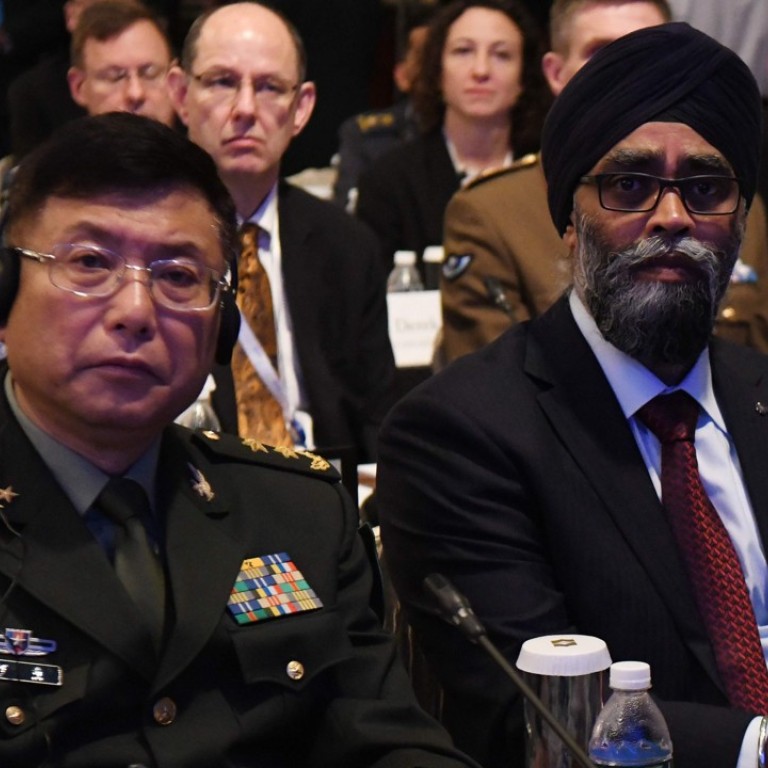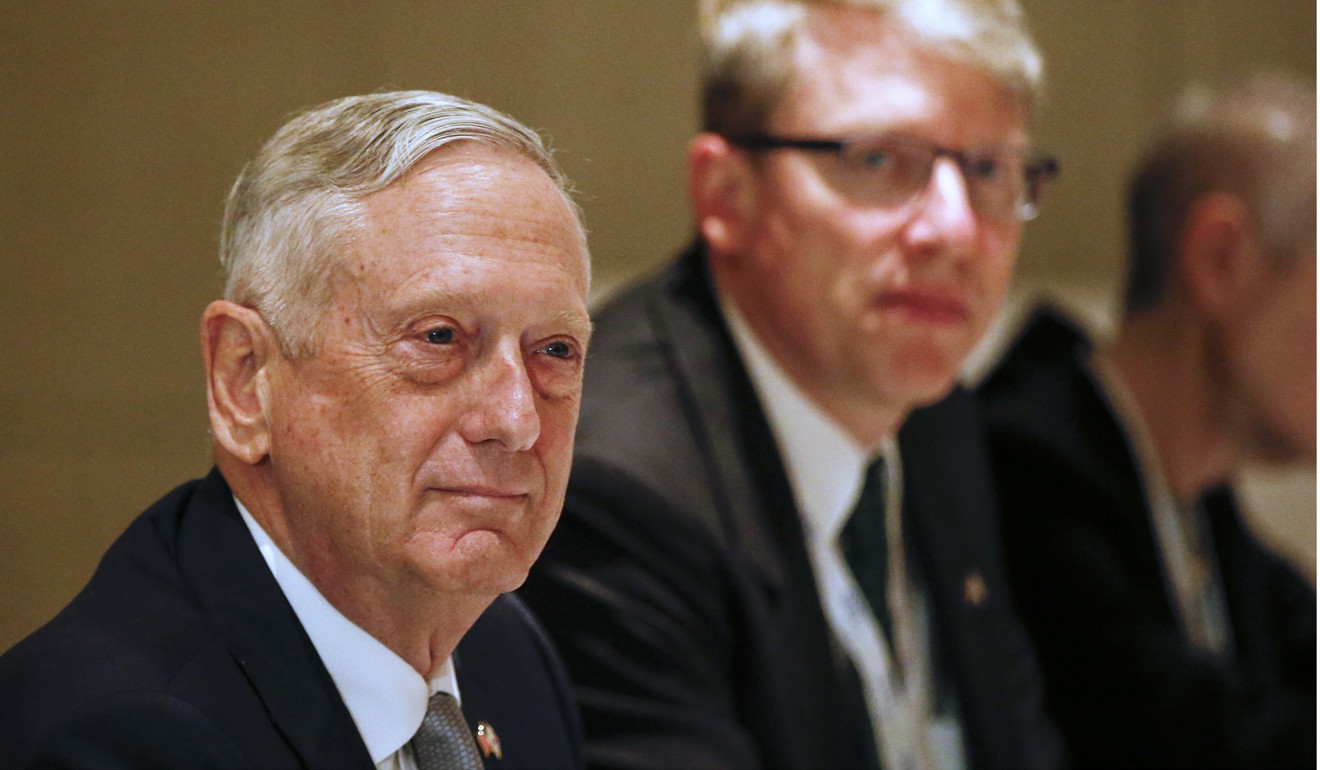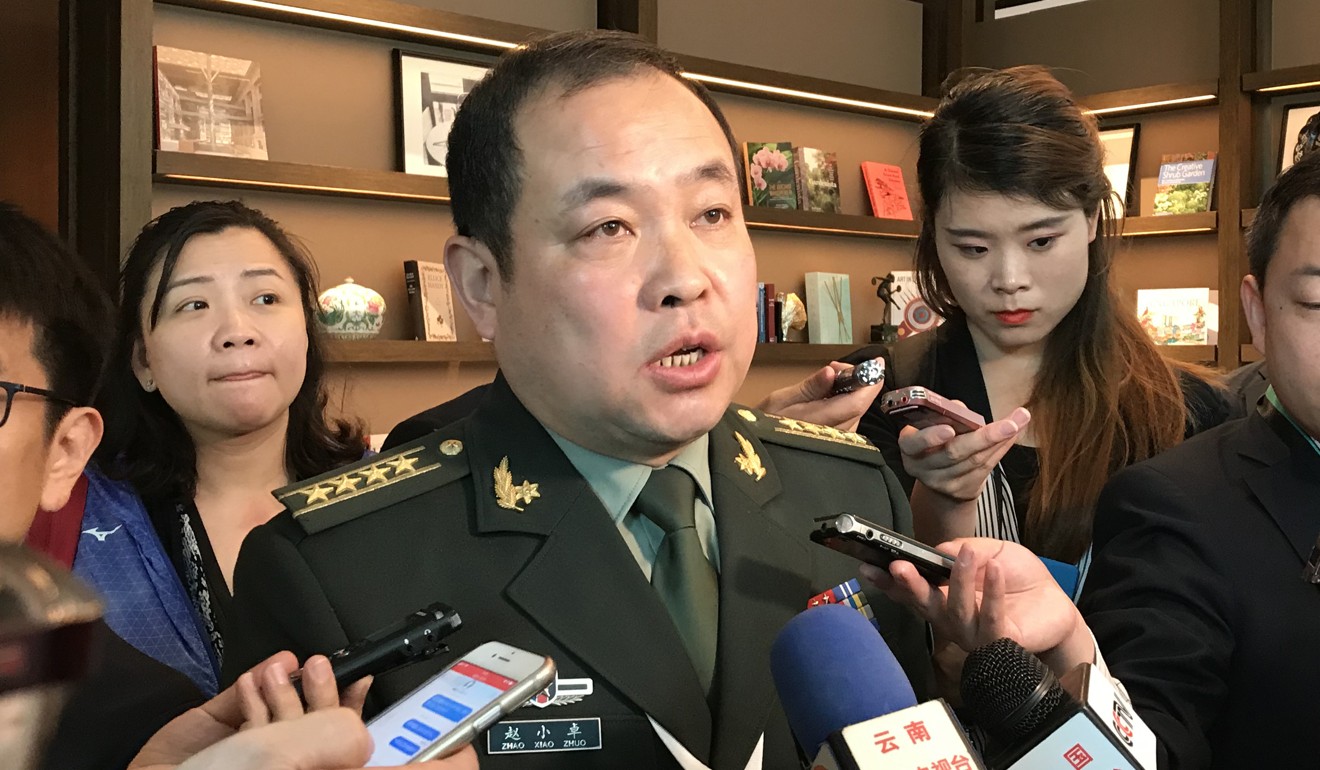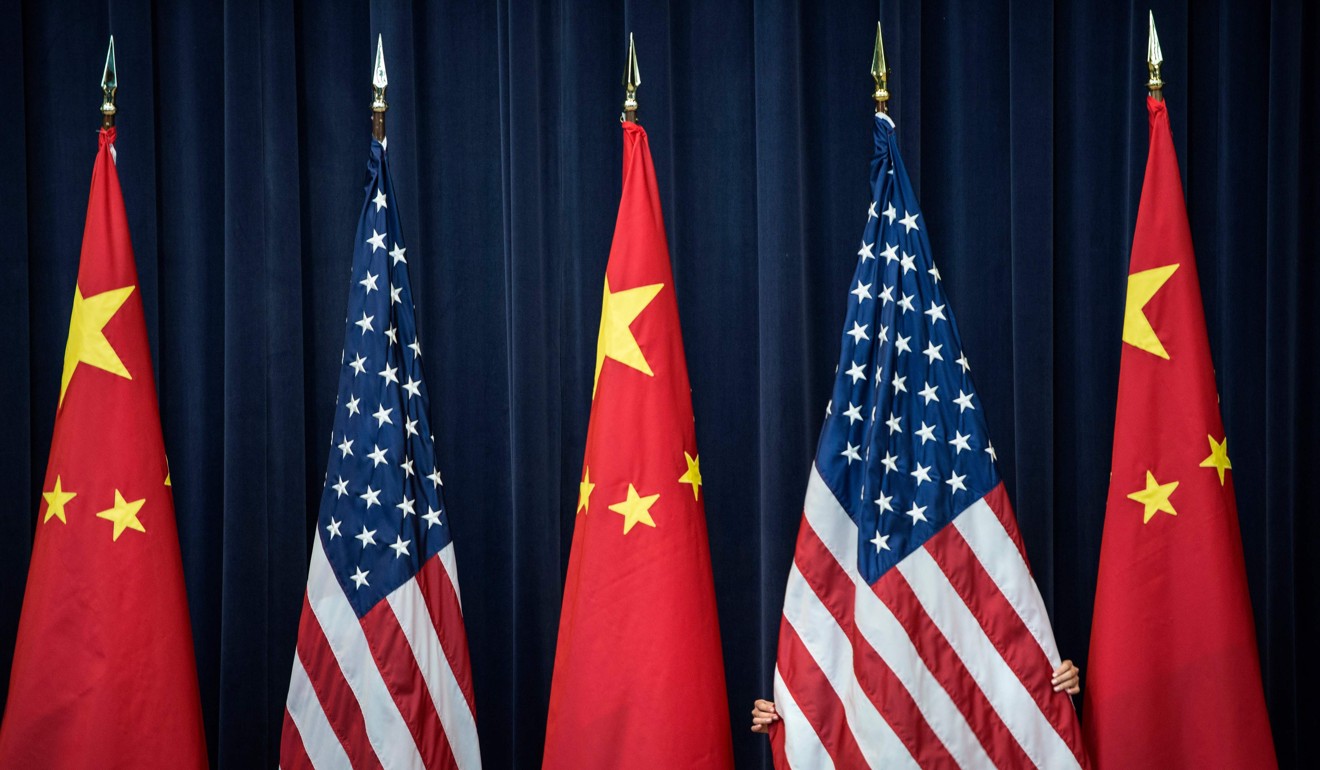
At Western-led summit, Chinese find controversy and a clash of cultures
After another war of words with the US at the Shangri-La Dialogue, delegates say they feel frustrated and compelled to fight back when criticised
A war of words between China and the United States at a regional security summit over the weekend has again highlighted the difficulty a rising China faces as it tries to navigate the international system and engage in dialogue with the West.
Beijing’s low-level delegation found itself at the centre of controversy during the Shangri-La Dialogue in Singapore – an annual forum for Asia attended by defence ministers and other officials from more than 50 countries – when it hit back at US criticism over its increasingly assertive stance, particularly in the South China Sea.
On Saturday, after US Defence Secretary Jim Mattis rebuked Beijing in a speech over its militarisation in the contested waters, Chinese Lieutenant General He Lei, vice-president of the Academy of Military Science, took an equally tough line – saying the US was the real source of conflict in the region.

Behind the scenes, Chinese delegates said they were at a disadvantage at the forum and felt their voices were ignored because it was dominated by Western countries, with different ideologies, who led the narrative.
“The US has created a grand narrative consisting of keywords including ‘rule-based order’, ‘freedom of navigation and overflight’, and ‘militarisation’ – once you hear these words, you know it’s a criticism targeting China,” said Yao Yunzhu, a retired PLA major general and a delegate at the forum.
Yao also said the Chinese military officials found it frustrating trying to communicate with their Western counterparts because of the language barrier and differences in how they approached conflict.
“At multilateral events like this, the way the Western delegates speak and behave is different from the style we’re used to,” Yao said. “The Western delegates always stick together. They all speak English and sometimes it’s difficult for us to communicate, and we do feel frustrated at times.”

Senior Colonel Zhao Xiaozhuo, a delegate from the Academy of Military Science, said conflict between China and the US tended to spill into the open at the annual event.
“The Shangri-La Dialogue has become an occasion for China and the US to engage in fights … and because of the official nature of the dialogue, it was inevitable that China had to hit back at Mattis’ accusations,” Zhao said. “But engaging in a fight does not help to solve the problems.”
A person who is familiar with deliberations on the issue by the International Institute for Strategic Studies, which hosts the forum, said Chinese officials’ concerns may be legitimate, but the country should not be given special treatment.
“I can understand if they may feel like they’ve been ganged up on coming here,” said the person, who requested anonymity. “I think that’s a legitimate question as to why the IISS, an organisation headquartered in London, hosts the region’s top security dialogue, and why there are so many Westerners here. Perhaps Beijing would prefer an institution with fewer non-Asian voices.”
But the person also said “the organisation can’t repeatedly give China special treatment when other countries with key speaking roles send their defence ministers or at least the chiefs of their defence forces”.

Another source familiar with the situation said the organiser had originally reserved a spot at a plenary session for China’s defence minister to give a speech but later cancelled it because Beijing decided to send a lower-level delegation.
The only time China has sent its defence minister to the dialogue was in 2011, when General Liang Guanglie attended. Since then it has sent lower-level representatives from the PLA, including last year’s, which was also led by He.
William Choong, Shangri-La Dialogue senior fellow for Asia-Pacific Security at the IISS, said the organiser had “pulled out all the stops”, making two trips to China this year trying to convince Beijing to send a higher-level delegation.
“Given the open nature of the Shangri-La Dialogue, we as organiser cannot control the speeches made or the questions being raised by other countries during the dialogue,” he said.
Growing concern over Beijing’s activities in the South China Sea and the East China Sea, as well as its “Belt and Road Initiative” meant that questions would arise during the event, he said.
Choong added that the organiser had always welcomed Chinese delegations at all levels and it remained important to have China’s voice on global strategic discussions.
The person familiar with IISS deliberations said China’s choice of delegation had created “an impression that Beijing wants to diminish the importance of the Shangri-La Dialogue because they want to create a parallel dialogue”.
“But it’s not great if you only talk to people who agree with you,” the person said.
Yao said it was important for China to continue to engage in multilateral events, including the ones hosted by Western institutions.
“The Xiangshan Forum’s main audience is still domestic, but occasions like the Shangri-La Dialogue have both international and domestic audiences,” Yao said. “It’s important that we continue to participate in the dialogue and it’s normal that we experience frustrations at this stage.”
Younger faces among the Chinese delegation also said forums like the Singapore event provided a good platform for China to listen to other voices.
“And I don’t think criticism is a bad thing – the fact that we hear many criticisms also means that China is rising and is now engaging more on the world stage,” said Lieutenant Colonel Zhang Chi, an associate professor at the Chinese National Defence University’s strategic advisory centre.
Additional reporting by Minnie Chan

